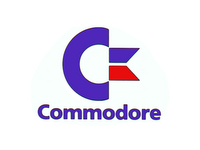
While it is
too late to attend
World of Commodore 2006 (Dec 1-3), maybe it is not too early to start planning for next year. The WOC is hosted each year by the
Toronto Pet User's Group, the oldest computer user group in Canada. TPUG was founded in 1979 and is still going, though membership has declined from a peak exceeding 20,000 in the early 1980s.
For those still in the dark, Commodore was a personal microcomputer manufacturer in the 1970s and 1980s responsible for the highly successful Commodore PET, VIC-20, C64, and Amiga computers. Thanks to colour graphics and more memory than any other computer in the same price range, Commodore shipped over 20 million C64s after it was introduced in 1982, making it perhaps the most popular computer of all time. For a history of Commodore longer than two sentences, try
http://www.commodore.ca, but a recent book on the subject should be enlightening.
On The Edge: The Spectacular Rise and Fall of Commodore by Brian Bagnall promises to explore how a company founded to repair typewriters in Toronto in the 1950s rose so quickly to the top of microcomputing in the early 1980s only to fall even more dramatically a few years later. I have yet to read his book, but it's on my Christmas list.
Jim Butterfield, one of TPUG's founders and a phenomenal advocate of personal computing in the 1970s and 1980s, gave a nice historical
talk on early microcomputing in Canada at the
York University Computer Museum a few years ago. YUCoM has a substantial collection of Commodore computers, including a VIC-20 that was manufactured in Canada, and several SuperPETs, produced in collaboration with the University of Waterloo.
Labels: Computing, Conferences


